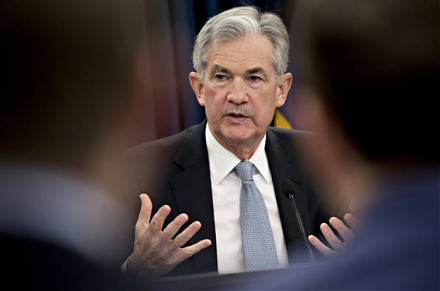

2017-12-11 08:42:00 Mon ET
stock market gold oil stock return s&p 500 asset market stabilization asset price fluctuations stocks bonds currencies commodities funds term spreads credit spreads fair value spreads asset investments
Fed Chair Janet Yellen says the current high stock market valuation does not mean overvaluation. A stock market quick fire sale would pose minimal risk to the economy and the macroprudential system. During her final Federal Reserve press conference, Yellen says the prime metrics such as the forward aggregate stock market P/E and P/B ratios are on the high end of historical ranges when the Fed warns that asset prices appear to be high. In fact, the low-interest-rate economic environment is supportive of higher stock prices and home prices. In this context, there is a reasonable balance of financial risks that manifest in the form of less worrisome levels of both bank leverage and private credit growth.
A recent Project Syndicate op-ed article sketches the key reasons for U.S. stock market rational exuberance such as better economic growth with low inflation, monetary and fiscal stimulus, full employment, and higher net income in both the household and corporate sectors. As the world economy skyrockets on all cylinders in America, Europe, and China with robust economic growth since the global financial crisis of 2008-2009, U.S. inflation remains below the 2% target, unemployment is less than 5%, and monetary policy normalization continues at a moderate pace. Federal Reserve shrinks its balance sheet post-QE, finishes the full course of 3 interest rate hikes in 2017, and then expects another around of 3 to 4 rate increases in 2018. The current 7-year uptick in U.S. corporate net income typically precedes the European and Asian counterparts in subsequent episodes. All of these reasons help justify the current Trump stock market rally as rational exuberance and optimism.
If any of our AYA Analytica financial health memos (FHM), blog posts, ebooks, newsletters, and notifications etc, or any other form of online content curation, involves potential copyright concerns, please feel free to contact us at service@ayafintech.network so that we can remove relevant content in response to any such request within a reasonable time frame.
2024-05-05 10:31:00 Sunday ET

Stock Synopsis: Pharmaceutical post-pandemic patent development cycle In terms of stock market valuation, the major pharmaceutical sector remains at its
2023-11-21 11:32:00 Tuesday ET

Nobel Laureate Paul Milgrom explains the U.S. incentive auction of wireless spectrum allocation from TV broadcasters to telecoms. Paul Milgrom (2019)
2025-05-21 04:27:10 Wednesday ET

Carol Dweck describes, discusses, and delves into the scientific reasons why the growth mindset often helps motivate individuals, teams, and managers to acc
2018-08-05 12:34:00 Sunday ET

JPMorgan Chase CEO Jamie Dimon sees great potential for 10-year government bond yields to rise to 5% in contrast to the current 3% 10-year Treasury bond yie
2018-12-07 11:35:00 Friday ET

Fed Chair Jerome Powell hints slower interest rate increases because the current rate is just below the neutral threshold. NYSE and NASDAQ share prices rebo
2024-10-14 11:33:00 Monday ET

Stock Synopsis: Video games continue to take both screen time and monetization from many other forms of entertainment. We are broadly positive about the